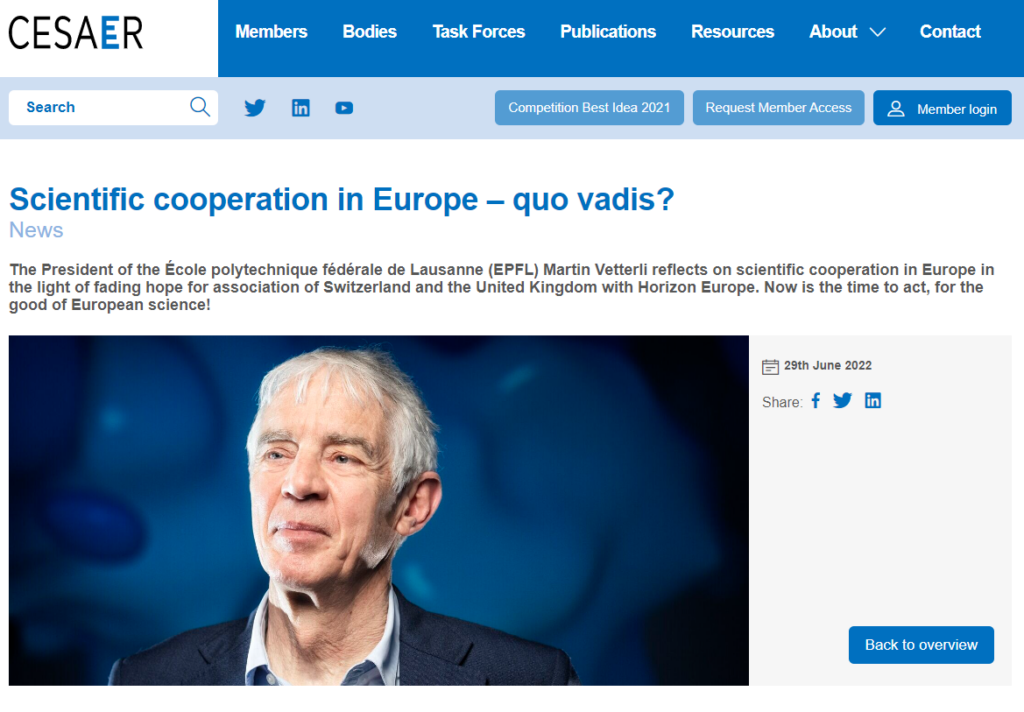
Martin Vetterli, president of EPFL, comments the current crisis which Europe is currently living, after Brexit, the COVID crisis and the war in Ukraine. He reflects on the obstacles to scientific cooperation, created by the delayed association of Switzerland and the United Kingdom to Horizon Europe.
Martin Vetterli urges to “think about what unites us, to explore common values, beyond national borders, detached from political skirmishes, be it in the EU, in the UK, in Switzerland or anywhere else in Europe”, in order to overcome political tensions.
He appeals “to the common sense in all of us, to return science and research to their rightful place in society, to help tackle the great challenges of our time as a united Europe, together, regardless of political differences. Science has the potential to unite, history has proven this many times. So, it is time to get back on the path of scientific virtue, to enable cooperation and not to hinder it. Not associating countries like the UK and Switzerland with Horizon Europe is absurd given the enormous challenges we face as a human race. It is an expression of narrow-mindedness on all sides to hold science hostage to a political situation it neither caused nor contributed to.”
The Stick to Science initiative was set up in order to give a voice and platform to the European research community, expressing their worries for the future of science in Europe. Martin Vetterli thanks all who supported this call. However, this request feels currently like “a call into the desert. The people who could make a difference didn’t or chose not to hear us. Hope is fading. Time is pressing, scientifically, as well as politically. With no solution, we all lose, not just Switzerland and the UK – but also the European Union and our continent as a whole. Now is the time to act, for the good of European science!
Read his full contribution under the website of CESAER, the European association of leading specialised and comprehensive universities of science and technology: Scientific cooperation in Europe – quo vadis? – CESAER
